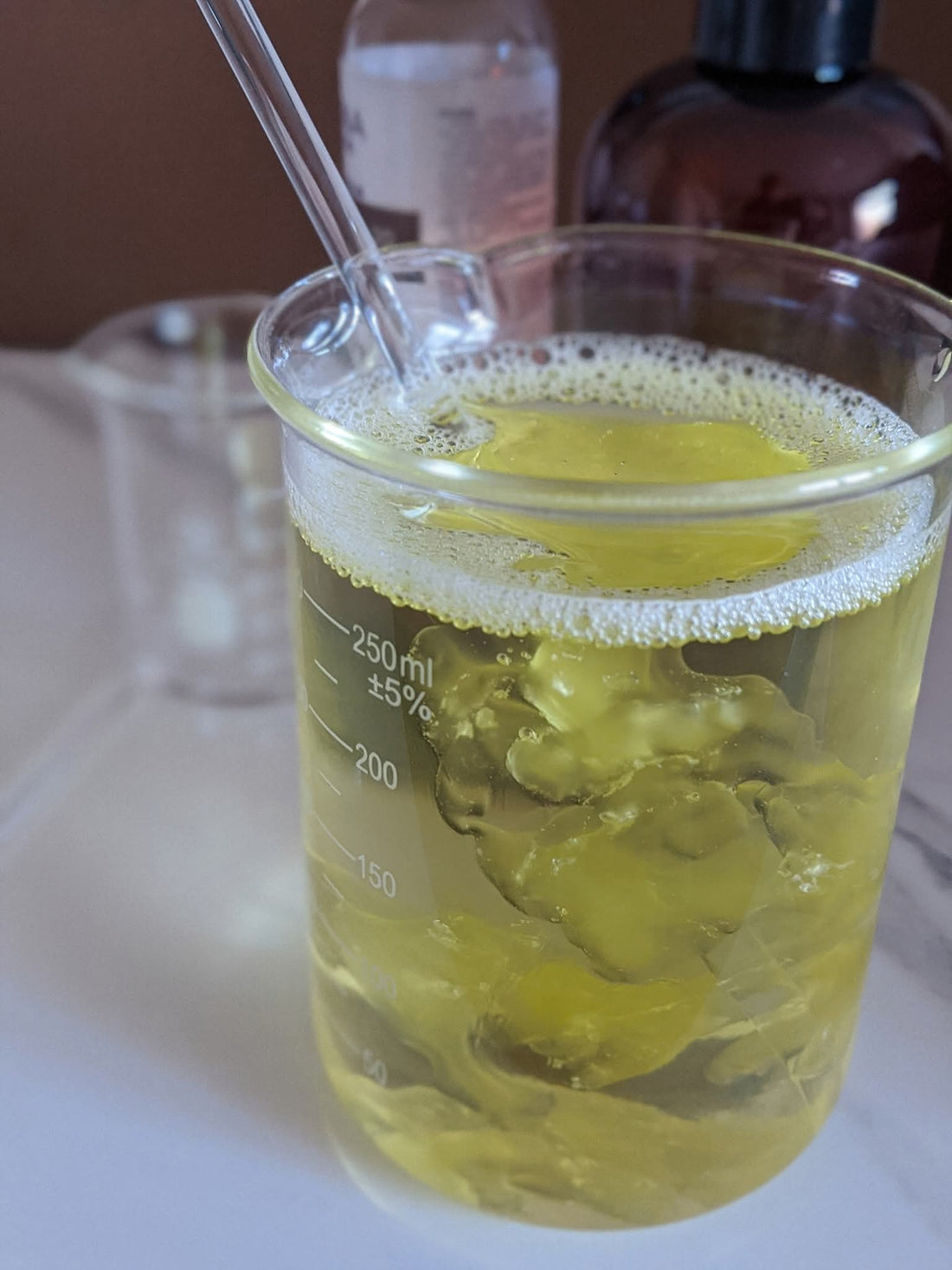
How to Make Liquid Soap with Hemp Oil (Cold Process Using Potassium Hydroxide)
If you love crafting your own skincare products, learning how to make liquid soap with hemp oil is a beautiful next step. This recipe uses potassium hydroxide (KOH), the key ingredient that turns oils into a silky, pourable soap instead of a hard bar.
Hemp seed oil is the star here — a plant-based oil prized for its deep green color and skin-soothing benefits. This cold process liquid soap method is simple, natural, and customizable, making it perfect for mindful makers and small-batch artisans.
---
🌱 Why Choose Hemp Seed Oil for Soap?
Hemp seed oil is rich in nutrients and adds a luxurious feel to handmade soap.
Benefits include:
High in omega-3 and omega-6 fatty acids that nourish and calm the skin
Naturally light and fast-absorbing, leaving skin soft and hydrated
Sourced from eco-friendly, renewable crops that require little water or pesticides
When blended with other oils, hemp oil helps create a balanced, moisturizing liquid soap that’s ideal for daily use.
---
⚗️ Sodium vs. Potassium Hydroxide
Most traditional bar soaps are made with sodium hydroxide (NaOH), which produces a solid bar. To make liquid soap, however, we use potassium hydroxide (KOH).
NaOH = solid bar soap
KOH = soft paste that dissolves into liquid soap
This difference allows your finished product to remain fluid and easy to use in pumps or foaming dispensers.

---
🧴 Ingredients & Equipment
Ingredients
Hemp seed oil – 8 oz (226 g)
Coconut oil – 8 oz (226 g)
Olive oil – 8 oz (226 g)
Castor oil – 2 oz (56 g)
Potassium hydroxide (KOH) – 4.5 oz (128 g)
Distilled water (for lye solution) – 12 oz (340 g)
Distilled water (for dilution) – 20–30 oz (adjust as needed)
Optional: essential oils or natural extracts
Equipment
Immersion blender
Digital scale
Heatproof bowls or a slow cooker
Thermometer
Goggles, gloves, and long sleeves
Non-aluminum utensils
---
🧪 Step-by-Step: How to Make Liquid Soap with Hemp Oil
1. Safety First
Always wear protective gear and work in a ventilated area. Slowly add potassium hydroxide to water (never water to KOH). The mixture will heat up — let it cool while preparing your oils.
2. Combine the Oils
Melt the coconut oil and mix it with the hemp, olive, and castor oils. Heat to around 100–120°F (38–49°C).
3. Blend Oils and Lye
Once both your lye solution and oils are at similar temperatures, carefully pour the lye solution into the oils. Use an immersion blender to mix until trace — when the mixture thickens to a light pudding consistency.
4. Saponify the Soap
You can let the mixture sit at room temperature for 3–4 days (cold process) or speed things up by “cooking” it on low heat in a slow cooker for 1–2 hours until it becomes a clear, gel-like paste.
5. Test for Clarity
Dissolve a small amount of paste in warm water. If it’s clear, saponification is complete. If it’s cloudy or oily, let it rest longer.
6. Dilute the Soap Paste
Add 20–30 oz of distilled water to the paste and gently heat, stirring occasionally until it dissolves into a smooth, liquid consistency. You can adjust the thickness by adding more or less water.
7. Customize and Bottle
Once cooled, stir in your favorite essential oils or botanical extracts. Pour into glass or recycled plastic pump bottles and label beautifully.

---
🌸 Pro Tips for Perfect Liquid Soap
Always use distilled water to maintain clarity.
Hemp oil is delicate — store your soap in a cool, dark place to prevent spoilage.
Check the pH level before use; a pH around 9–10 is ideal.
Try blending with essential oils like lavender, eucalyptus, or tea tree for extra skin benefits.